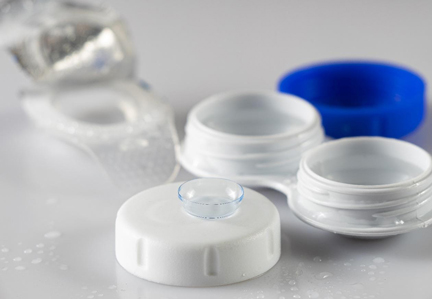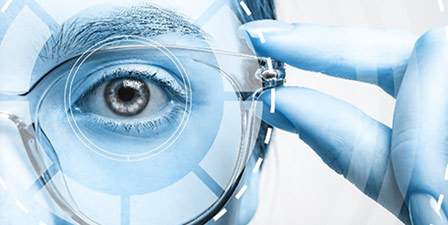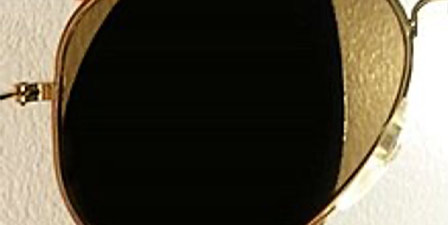
When the CDC recommendations for health care professionals include, “Vigilance and proper hygiene - thorough handwashing, PPE use, disinfecting equipment in the office when in contact with bodily fluids, such as tears, can help prevent infection,” contact lens wear immediately comes to mind. Here is what other experts are saying about COVID-19 and contact lenses.
From the Centre for Ocular Research and Education (CORE), three top researchers from the US and the UK say, “contact lens wear remains a safe and highly effective form of vision correction.” Eye care professionals have always hammered home the need for proper hygiene with contact lens wear, but now more than ever, it is critical for preventing infection. CORE goes on to say:
Proper Hand Washing is Essential. When using contact lenses or spectacles, careful and thorough hand washing with soap and water followed by hand drying with unused paper towels is paramount. For contact lens wearers, this should occur before every insertion and removal. (The time spent washing hands should be the same amount of time it takes to sing Happy Birthday, about 20 seconds.)
Disinfect Contact Lenses. Contact lens wearers should either dispose of their daily disposable lenses each evening, or regularly disinfect their monthly and two-week lenses according to manufacturer and eye care professional instructions.
Disinfect Spectacles and Glasses. Some viruses such as COVID-19 can remain on hard surfaces for hours to days, which can be transferred to spectacles wearers’ fingers and faces. This especially holds true for presbyopes. Most presbyopes require reading glasses and they may be putting them on and off their face multiple times a day. This age group appears to be among the more vulnerable population for developing COVID-19, as compared with contact lens wearers, who are typically younger.
Discontinue Lens Wear Only if Sick. Ceasing contact lens wear when sick is advised, consistent with guidance for other types of illness.
Spectacles are Not Proven to Offer Protection. There is no scientific evidence that wearing spectacles or glasses provide protection against COVID-19 or other viral transmissions.
Sonal Tuli, MD, a spokesperson for the American Academy of Ophthalmology recommends, “If you wear contact lenses, switch to glasses for a while.” (This refers to those who would wear glasses full time versus presbyopes.) Contact lens wearers touch their eyes more than the average person. “Consider wearing glasses more often, especially if you tend to touch your eyes a lot when your contacts are in. Substituting glasses for lenses can decrease irritation and force you to pause before touching your eye.”
In summary for contact lens wearers, stay calm and carry on, but keep ‘em clean with good hygiene.
Learn how contact lenses are used in the treatment of eye injury and disease, as prosthetics and in drug delivery with our CE, Therapeutic Contact Lenses and Beyond, at 2020mag.com/ce.













